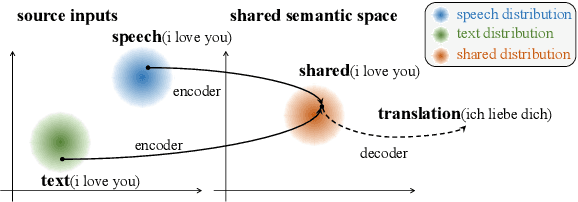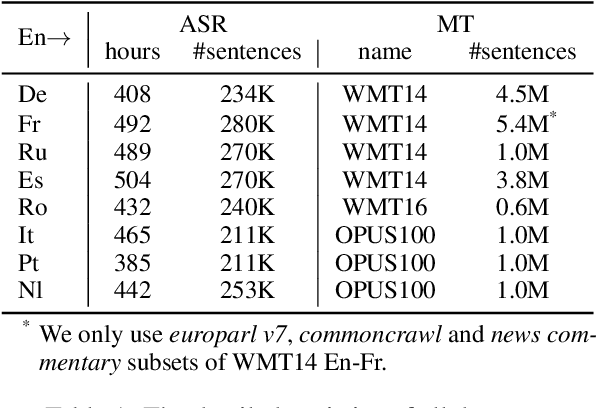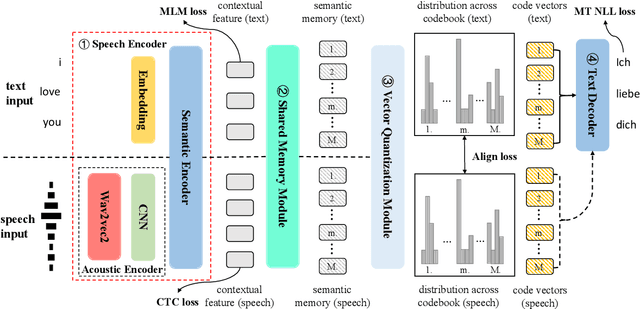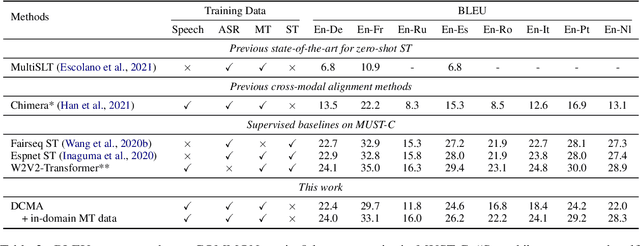Discrete Cross-Modal Alignment Enables Zero-Shot Speech Translation
Paper and Code
Oct 18, 2022



End-to-end Speech Translation (ST) aims at translating the source language speech into target language text without generating the intermediate transcriptions. However, the training of end-to-end methods relies on parallel ST data, which are difficult and expensive to obtain. Fortunately, the supervised data for automatic speech recognition (ASR) and machine translation (MT) are usually more accessible, making zero-shot speech translation a potential direction. Existing zero-shot methods fail to align the two modalities of speech and text into a shared semantic space, resulting in much worse performance compared to the supervised ST methods. In order to enable zero-shot ST, we propose a novel Discrete Cross-Modal Alignment (DCMA) method that employs a shared discrete vocabulary space to accommodate and match both modalities of speech and text. Specifically, we introduce a vector quantization module to discretize the continuous representations of speech and text into a finite set of virtual tokens, and use ASR data to map corresponding speech and text to the same virtual token in a shared codebook. This way, source language speech can be embedded in the same semantic space as the source language text, which can be then transformed into target language text with an MT module. Experiments on multiple language pairs demonstrate that our zero-shot ST method significantly improves the SOTA, and even performers on par with the strong supervised ST baselines.
 Add to Chrome
Add to Chrome Add to Firefox
Add to Firefox Add to Edge
Add to Edge